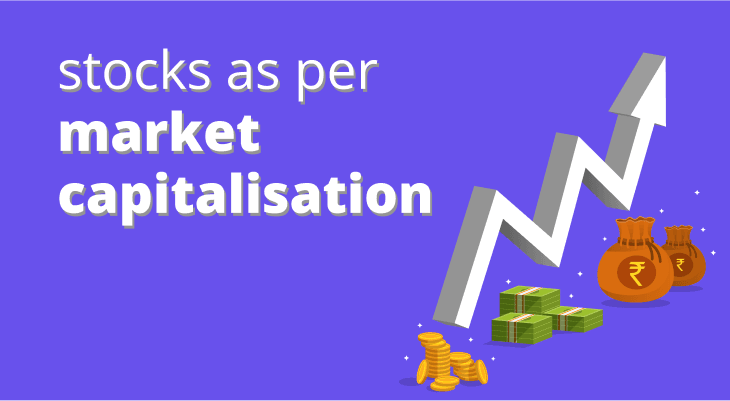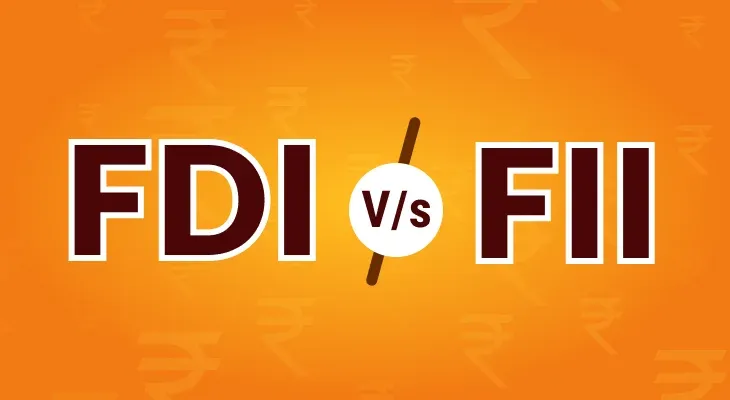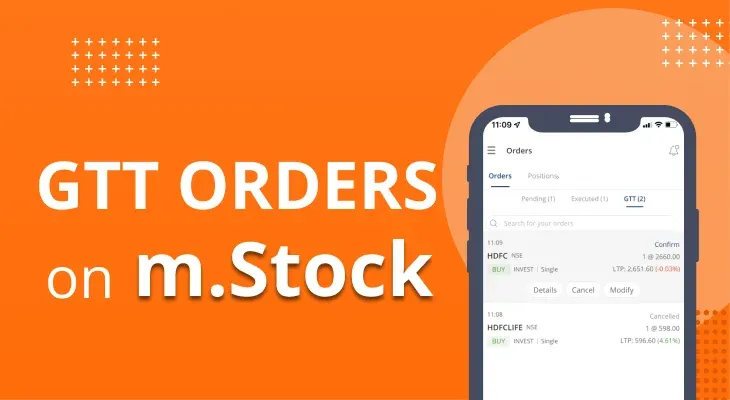
Table of content
- Understanding the Primary Market
- How does the Primary Market work?
- The Different Participants in the Primary Market
- The Functions of the Primary Market
- Advantages of Primary Market
- Example of Primary Market
- Factors to consider while investing in the Primary Market
- Types of Issuances in the Primary Market
- The Bottom Line
What is Primary Market?
When you think of the stock market, you perhaps conceive it as one big electronic market. While that is certainly true to some extent, the fact is that the stock market can be divided into two sections — the primary market and the secondary market. The secondary market is where you typically buy and sell shares via stock exchanges like the National Stock Exchange (NSE) and the Bombay Stock Exchange (BSE).
But what is the primary market? Let’s find out.
Understanding the Primary Market
The primary market, also known as the new issue market, is that segment of the capital market where securities are issued to investors for the first time. For instance, when a company decides to launch an Initial Public Offering (IPO), its equity shares are first issued to successful subscribers in the primary market.
Similarly, when a company or a government entity issues corporate bonds or government bonds for the first time, it is done in the primary market.
How does the Primary Market work?
The primary market serves as a critical platform where organisations can issue new securities to raise capital for various purposes. Primary marketing is essential for companies looking to expand their business operations, fund new projects, or improve their infrastructure. Here’s a detailed breakdown of how the primary market operates:
Purpose Of Issuing Securities
Companies enter the primary market to issue new securities with the goal of raising funds. This influx of capital is typically used for business expansion, launching new projects, or refinancing existing debt.
Regulatory Framework
The issuance of securities in the primary market is governed by strict regulations to ensure transparency and protect investor interests. Companies must adhere to the guidelines and requirements set by regulatory authorities.
Filing With SEBI
In India, before issuing any securities, companies are required to file specific statements with the Securities and Exchange Board of India (SEBI). This filing is crucial as it includes all the details about the offering, ensuring that all legal standards are met and that potential investors have access to essential information about the securities.
Sale Of Securities
Once the securities are approved for sale, they are offered to investors. This can include both individual and institutional investors. The process continues until all the stocks, bonds, or other securities in the initial offering are sold.
Closure Of The Primary Market
After the securities are fully sold, the primary market for that particular issue closes. At this point, no further securities can be sold within the primary market for that specific issuance.
Transition To Secondary Market
Post the closure of the primary market, these securities become eligible for trading in the secondary market. This is where they can be bought and sold among investors independently of the issuing company. The secondary market provides liquidity and pricing for the securities issued in the primary market.
The Different Participants in the Primary Market
Now that you know what the new issue market is, it’s important to get to know the different participants in this market segment. Check out these details below:
The Issuing Entity
These are the entities that issue the new securities in the primary market. They include companies and corporations, government entities and other organizations.
The Underwriters
Underwriters help companies prepare for their new issues. They also take on the responsibility of acquiring any unsold shares if the company is unable to sell the required number of shares to investors publicly.
The Intermediaries
Intermediaries include various entities like banks, brokers, dealers and other financial institutions who help facilitate the issue of new securities in the primary market.
The Market Regulators
Market regulators are bodies like the Securities and Exchange Board of India (SEBI) that oversee the functioning of the primary market. They ensure that the issue follows all the regulations in place.
The Investors
The investors are the institutions and the individuals who purchase the securities issued in the primary market.
The Functions of the Primary Market
The primary market in any country has several functions. Here is a closer look at why this market segment is an important part of India’s financial markets:
Raising Capital And Funding
The primary market gives companies a regulated space to raise capital for their business by issuing new stocks and/or bonds. The funds generated through such issues make it easier for issuing companies to meet the financial requirements of their business.
Facilitation Of Ownership Transfer
Promoters in companies may want to liquidate their shareholdings in the entity. Initial Public Offerings in the primary market make this transfer of ownership from the promoters to the public possible.
Price Discovery
Underwriting in the primary market makes it easier to identify the initial price of a company’s security based on the forces of demand and supply in the market. This process of price discovery is crucial to any company that is launching a fresh issue of securities.
Creation Of Investment Opportunities
Lastly, primary markets also provide investors with the opportunity to invest in newly issued stocks, bonds and other securities. These opportunities are not available in the secondary market, where only the stocks of previous listed companies are traded. For investors seeking to diversify their portfolio with the stocks of new companies, the primary market is highly beneficial.
Advantages of Primary Market
Primary marketing offers several advantages for investors interested in buying new securities directly from issuers. Here are some key benefits outlined succinctly:
Higher Potential Returns
Investing in the primary market can yield potentially higher returns compared to traditional investment avenues such as fixed deposits or bonds, due to the initial pricing often being lower.
Early Access To Securities
Investors get the first opportunity to purchase securities during their initial issuance, which can provide a competitive edge over those buying in the secondary market.
Capital Appreciation
If the issuing company performs well post-IPO, its stock price may increase, leading to capital appreciation and a significant boost in investment value.
Control Over Investments
The primary market allows investors to make informed decisions based on thorough research and analysis, offering more control over which securities to invest in.
Example of Primary Market
An example of the primary market in action is the initial public offering (IPO) of a technology startup. When a startup like this decides to go public, it begins by selecting underwriters and setting a price for its shares. The company then issues these new shares directly to investors through the IPO. Investors participating in this IPO are buying directly from the company, and the funds raised from these sales go directly to the startup for use in its operations, expansion, or other pre-specified purposes. This process not only helps the startup raise the necessary capital to grow but also provides investors with the opportunity to be part of the company's financial future from an early stage.
Factors to consider while investing in the Primary Market
When investing in the primary market, consider these key factors to make informed decisions:
Company Fundamentals
Thoroughly examine the company’s financial health, management quality, industry trends, and future growth prospects before investing.
Valuation
Assess the pricing of the company’s shares. An IPO or Follow-on Public Offer (FPO) priced too high might not yield expected returns, indicating it might be overvalued.
Investment Goals
Clearly define your investment objectives, considering what you hope to achieve and your tolerance for risk. This will guide your decision-making process.
Market Conditions
Evaluate the current market environment and any specific risks related to the company or its industry. Market sentiment can significantly affect the performance of new issues.
Underwriters’ Credibility
Investigate the track record and reputation of the underwriters and lead managers handling the issuance. Experienced underwriters often contribute to a successful securities launch.
Types of Issuances in the Primary Market
There are different types of issuances that the primary market supports, ranging from IPOs to rights and bonus issues. Take a closer look at the different types of security issues that occur in the primary market:
Initial Public Offering (IPO)
An IPO is the first issue of a company’s shares to its public. It allows the company to make the transition from a private company to a listed entity.
Follow-On Public Offering (FPO)
Any further issue of shares by a company to the public following the IPO is termed as an FPO. These issues also occur in the primary market.
Rights Issue
A rights issue is the issue of shares by a company to its existing shareholders. These issues are typically made at a discounted price, and shareholders have the option (but not the obligation) to exercise their rights to purchase the company’s shares at the reduced price.
Bonus Issue
A bonus issue is also an issue of shares by a company to its current shareholders. Here, the shares are offered free of charge as a reward to the company’s shareholders, or to increase liquidity among the company’s shares in the market.
Preferential Allotment
Preferential allotment involves issuing shares to a select group of investors at preferential or discounted rates. Companies resort to this kind of issue in the primary market to raise capital quickly and more affordably.
The Bottom Line
The primary market is an essential segment of the financial markets in the country. The SEBI and other regulatory bodies oversee the functioning of issues in the primary market strictly, so the interests of the issuing entities as well as the investors are protected. If you want to take advantage of listing gains, or if you want to become an early investor in a company, the primary market is where the opportunities lie.
FAQ
Who can invest in the Primary market?
Anyone including individual investors, institutional investors, and large entities can invest in the primary market, provided they meet specific regulatory and financial requirements set by the market regulators.
Can you invest online in the primary market?
Yes, you can invest online in the primary market. Many brokerages and financial platforms offer online portals and apps that facilitate the subscription to initial public offerings (IPOs) and other securities.
What is the impact of the primary market on the economy?
The primary market significantly impacts the economy by enabling companies to raise capital directly from investors. This infusion of funds helps in business expansion, job creation, and overall economic growth.
What is the difference between the primary and secondary market?
The primary market involves the original sale of securities by issuers to investors, whereas the secondary market involves trading securities among investors after the initial issuance, without the involvement of the issuing companies.
What is the other name of the primary market?
The primary market is also commonly referred to as the "new issue market," since it deals with the issuance of new securities directly from issuers to investors.


